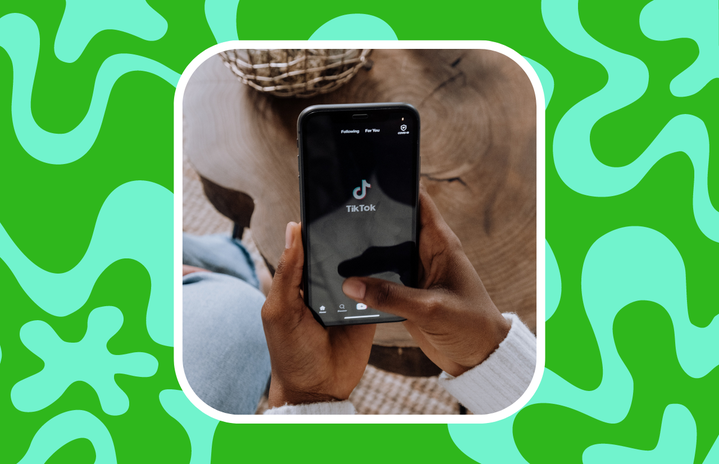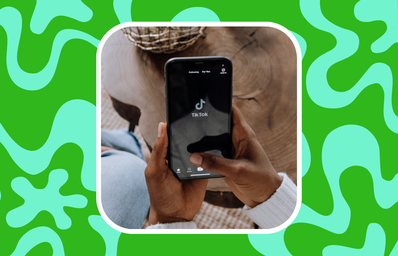In today’s day in age, the overuse of technology is just considered the social “norm,” and it’s really not okay.
But what is it that makes both social media and the general use of smartphones so addicting?
Why can’t we disconnect?
This seed was planted in my head a few months prior, when I came across a TikTok of a man explaining how he struggles with feelings of anxiety because of overstimulation through his extensive smartphone usage.
Then, I realized that I have the exact same issues that he was describing.
The issue at large came down to the fact that he couldn’t stand to sit in silence without some sort of mental stimulus — even if it was for short periods of time.
I constantly have music playing when I am doing the smallest of tasks. I put it on without even realizing I do it half the time.
Or, I watch a video while eating, or I put on a show just as background noise while I do work.
And that’s an issue. A huge one.
First of all, let’s go over what overstimulation is.
According to mainstreetcounsilingnj.com, “When a person is overstimulated, their senses are overloaded by stimuli such as sound or light to the point that it can be challenging to cope with. For example, if a newborn or infant is exposed to a loud toy with a lot of lights for an extended period of time, they will become overwhelmed by the stimulation and end up crying. The same happens for older children and even adults. However, rather than crying like babies do, overstimulation manifests itself through anxiety, depression and other mood issues, such as feeling irritable or agitated.”
Tying this back into the use of technology, particularly social media, our brains produce a rush of dopamine when we open social media apps.
Dopamine is a chemical in your body that is responsible for pleasure. According to Science in the News by Harvard University, “It {dopamine} gets released when we take a bite of delicious food, when we have sex, after we exercise, and, importantly, when we have successful social interactions. In an evolutionary context, it rewards us for beneficial behaviors and motivates us to repeat them.”
The bright colors, visually appealing layouts and mindless entertainment that come along with smartphones provide the perfect formula for addiction to thrive.
Then, before you know it, you are dependent on your phone for just about all daily entertainment.
“Humans’ brains are constantly being aroused throughout the day with little time to break. The result? Symptoms of anxiety, depression, and other mood related issues.”
mainstreetcounsilingnj.com
We form attachments, mostly anxious attachments, to our phones.
“Some individuals experience anxiety when they are away from their phones. For other individuals, stress is even exhibited as withdrawal-like symptoms. The overuse of smartphones creates a psychological dependency, and separation from the device will create anxiety” (butler.org).
Not only are increased anxiety levels apparent with smartphones, but TikTok presents major issues related to attention span and normal brain development.
According to Dr. Julie Albright, “Our brains are changing based on this interaction with digital technologies and one of these is time compression. Our attention spans are lowering.”
Personally, I feel as though there is a spike in the amount of people I meet day-in and day-out who have developed ADHD tendencies. Myself included, I believe this is due to our TikTok exposure to content that is delivered, and done effectively, in the matter of seconds with visually appealing colors, text, people — the list continues on.
I mean think about it, do you ever catch yourself needing to use your airpods on just a short walk to class?
What if you forgot your airpods for the gym and have no way to listen to music or stream a show while you run on the treadmill?
Way too many of us are guilty, and it’s time we change that.
So, what can we do?
Slowly removing technology from my everyday tasks that do not require it is how I began cleansing myself of this bug.
Try not using airpods on your walk to class tomorrow ,and the next day, do the same thing. Also, shut your phone off while you eat lunch.
Get the gist? Slowly cut it out, until it’s not your “normal” habit.
Now, I’m not saying don’t listen to music or watch a show ever again.
The most important thing to consider is balance, meaning using technology at healthy rates. I definitely think that smartphones are a great way to blow off steam and turn your brain off when you want to relieve stress.
But too much of it can cause some serious damage.
Spend time allowing yourself to be present and resume your focus on the physical world around you. Allow your brain to have a break.
By slowly implementing these gestures, you will notice yourself feeling engaged, relaxed and connected (mainstreetcounsilingnj.com).
Do me a favor and give your brain a break.


